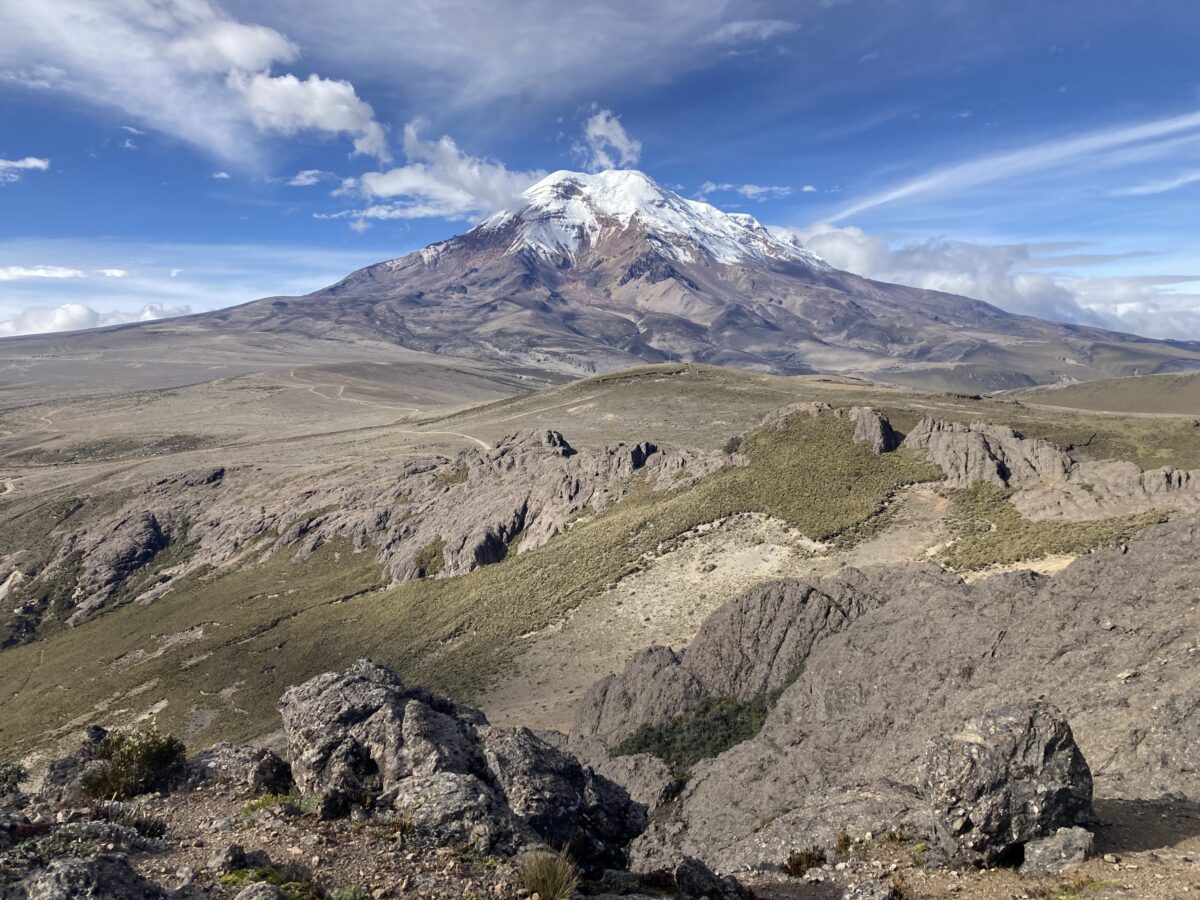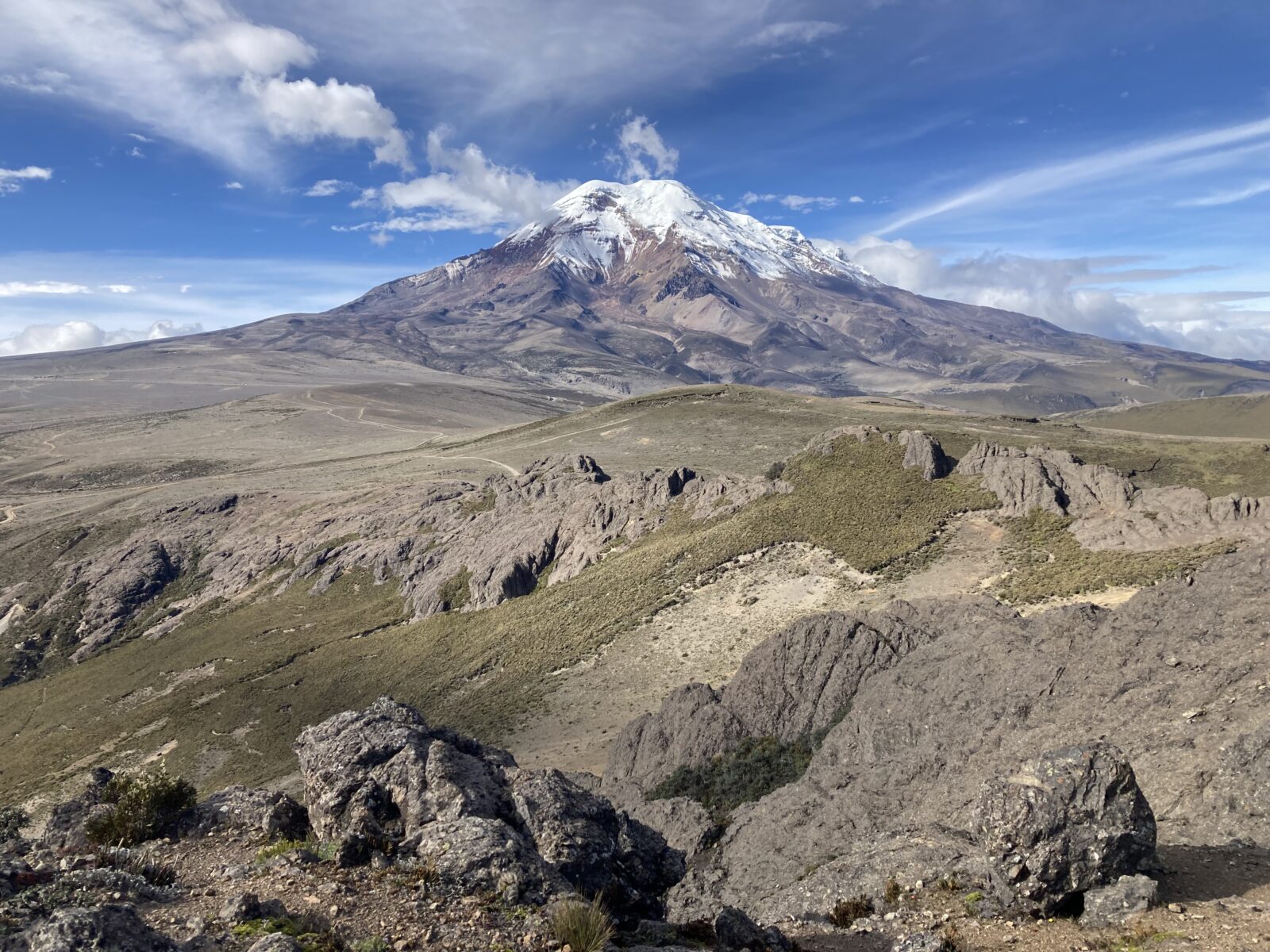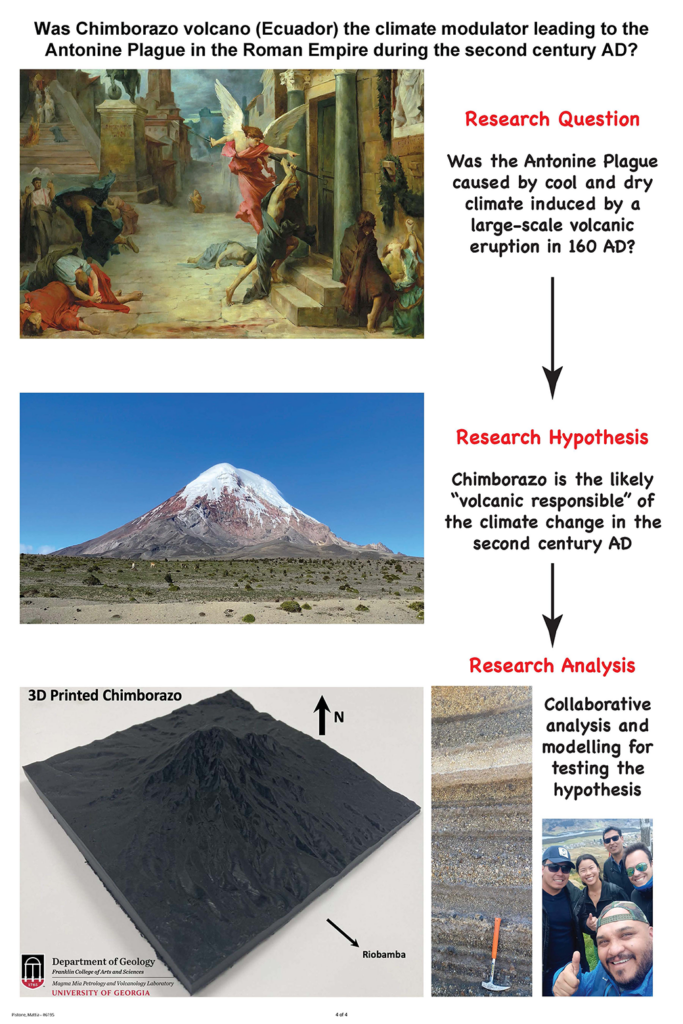Teaming for Interdisciplinary Research Pre-Seed Program
CLIMAX: Was Chimborazo volcano (Ecuador) the climate modulator leading to the Antonine Plague in the Roman Empire during the second century AD?

CLIMAX: Was Chimborazo volcano (Ecuador) the climate modulator leading to the Antonine Plague in the Roman Empire during the second century AD?

CLIMAX is transdisciplinary research aimed to decode the interplay between climate change and large-scale eruption events by resolving the challenges of volcano-climate interaction, sub- surface processes leading to eruptions, and volcanic crisis preparedness and risk management at communities living in the shadow of active volcanoes. We aim to study the historical role of Chimborazo (Ecuador) as a volcano-induced climate crisis affecting the pre-Hispanic communities of Puruhá and Incas and as one of the possible contributors to the Antonine plague that struck in the Roman Empire in the second century AD. Also, we aim to study the present-day Chimborazo volcano as a fragile mountainscape environment in which climate change-induced glacial ablation could lead to new natural hazards threatening the city of Riobamba and local communities (ca. 460,000 inhabitants within 30 km radius from the volcano).
We propose to: a) correlate the age of the last eruption of Chimborazo assessed using radiocarbon analysis at CAIS, b) survey the volcano edifice and its ice cap instability zones and hazards using remote sensing techniques, c) modeling the interplay between climate dynamics, mountainscape, magma unrest, and eruption activity, and d) disseminating the project results via science communication, public outreach, conference abstracts, and publications.
CLIMAX project is led by a transdisciplinary team of geologists, archeologists, geographers, climatologists, remote sensing scientists, landscape architects, environmental communicators, and tourism management scientists from UGA and ESPOCH (Ecuador). Mattia Pistone studies magma transport, eruption dynamics, and volatile cycles in the Earth’s interior using a combination of experimental, analytical, and field-based approaches. The logistical organization of the CLIMAX field mission project will be facilitated by scientists Carlos Renato Chavez Velasquez, Danny Daniel Castillo Vizuete, Alex Vinicio Gavilanes Montoya, and Christiam Aguirre from ESPOCH. Fausto Sarmiento will catalyze the UGA-ESPOCH collaboration, generate the collection and export permits of samples, produce a counter-mapping of Chimborazo’s local knowledge, and will assist during fieldwork for biocultural diversity and microsites refugia. David Leigh and David Porinchu are geography scientists specialized in climate changes and human impacts throughout the Holocene, including modern timescales. Alexander Cherkinsky is one of the PIs of the Calhoun Critical Zone Observatory with >30 years of experience in carbon and stable isotope ratio analysis, including radiocarbon analyses of paleosols needed to establish the age of the eruptions at Chimborazo. Jordan Pickett, from UGA Classics, is an archaeologist and environmental historian, an expert in Roman historical texts and archaeology related to the Antonine Plague’s impacts in ancient Mediterranean society. Kyle Woosnam is specialized in managing and planning for nature-based tourism in rural amenity-rich regions; he will work in tandem with the ESPOCH scientists to determine the historical impact of Chimborazo on cultural ecosystem services among indigenous populations. Jon Calabria is a research leader in landscape architecture, conservation, and resiliency; he will assist with planning and site design activities to reduce impacts to human settlement from disturbances. Anandam Kavoori works at the intersection of science and storytelling, and has been a consultant to Discovery Channel, CNN international and Start TV. His expertise will greatly contribute to the science communication protocols of CLIMAX project, and will help reach different stakeholders and audiences and implement broader impacts of the proposed project.
Team Lead
Mattia Pistone
mp77656@uga.edu
Geology
Team Members
Jon Calabria
jcalabr@uga.edu
Environment + Design
Environment + Design
Anandam Kavoori
akavoori@gmail.com
Grady
Entertain & Media Stds
Jordan Pickett
jordan.pickett@uga.edu
Franklin
Classics
Fausto Sarmiento
fsarmien@uga.edu
Franklin
Geography
Kyle Woosnam
woosnam@uga.edu
Warnell Forest
Science and Natural Resources
David Leigh
dleigh@uga.edu
Franklin
Geography
David Porinchu
porinchu@uga.edu
Franklin
Geography
Alexander Cherkinsky
acherkin@uga.edu
Center for Applied Isotope Studies
Center for Applied Isotope Studies

